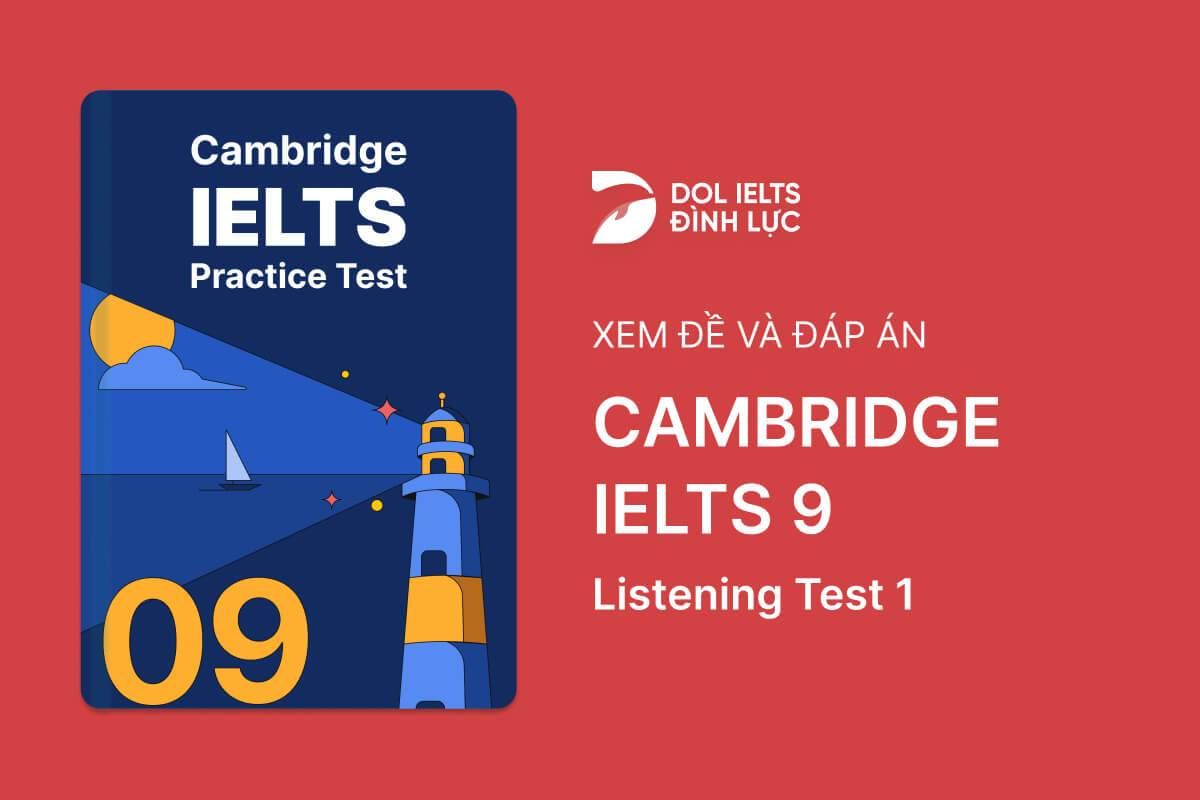Cambridge IELTS 9 - Listening Test 1 With Practice Test, Answers And Explanation
Luyện tập đề IELTS Online Test Cambridge IELTS 9 - Listening Test 1 được lấy từ cuốn sách Cambridge IELTS 9 với trải nghiệm thi IELTS trên máy và giải thích đáp án chi tiết bằng Linearthinking, kèm answer key và list từ vựng IELTS cần học trong bài đọc.
Section
👂️ Bài nghe section 1
Example
Type of work:
1Number of hours per week: 12 hours
Would need work permit
Work in the:
branch2Nearest bus stop: next to
3Pay:
£ an hour4Extra benefits:
a free dinner
Extra pay when you work on
5Transport home when you work
6
Qualities required:
7Ability to
8
Interview arranged for: Thursday
at 6 pm9Bring the name of two referees
Ask for: Samira
10
❓ Tapescript section 1
🔥 Đáp án & giải thích section 1
Giải thích chi tiết
 Xác định loại từ cần điền là Noun + thông tin: một loại công việc ở restaurant
Xác định loại từ cần điền là Noun + thông tin: một loại công việc ở restaurant
 Bạn nam hỏi: "what sort of work is it " >> bạn nữ trả lời "It’s answering the phone.">> bạn nam confirm lại "fine"
Bạn nam hỏi: "what sort of work is it " >> bạn nữ trả lời "It’s answering the phone.">> bạn nam confirm lại "fine"
>> Điền "answer(ing) (the) phone" 
Section
👂️ Bài nghe section 2
a new
of an international sports goods company11located in the shopping centre to the
of Bradcaster12has sports
and equipment on floors 1 – 313can get you any item within
days14shop specialises in equipment for
15has a special section which just sells
16
❓ Tapescript section 2
🔥 Đáp án & giải thích section 2
Giải thích chi tiết
 Xác định loại từ cần điền: Noun + thông tin: một điều mới của công ty.
Xác định loại từ cần điền: Noun + thông tin: một điều mới của công ty.
 Sau khi nghe "about what's happening in town this weekend." là đáp án chuẩn bị tới.
Sau khi nghe "about what's happening in town this weekend." là đáp án chuẩn bị tới.
 Bạn có thể nghe "Sports World - the branch of a Danish sports goods company that opened a few years ago - it's attracted a lot of customers," >> ứng với international sports goods company.
Bạn có thể nghe "Sports World - the branch of a Danish sports goods company that opened a few years ago - it's attracted a lot of customers," >> ứng với international sports goods company.
>> Nghe tiếp "so the company has now decided to open another branch in the area" >> quyết định mở thêm 1 branch khác
>> Điền "branch" 
Section
👂️ Bài nghe section 3
❓ Tapescript section 3
🔥 Đáp án & giải thích section 3
Giải thích chi tiết
 Nghe tới "a couple of weeks ago in our marketing subject, when it was my turn to give a presentation I felt quite confident" là biết đáp án sắp tới
Nghe tới "a couple of weeks ago in our marketing subject, when it was my turn to give a presentation I felt quite confident" là biết đáp án sắp tới
 Bạn nghe "I was still nervous but because I had done one before, I knew what to expect."
Bạn nghe "I was still nervous but because I had done one before, I knew what to expect."
>> Có nervous >> Loại đáp án A
 Bạn nghe "in relation to some of the other people in my group, I did quite a good job", nhưng không nói "the best"
Bạn nghe "in relation to some of the other people in my group, I did quite a good job", nhưng không nói "the best"
>> Loại đáp án C
Section
👂️ Bài nghe section 4
were all
36were not in a
37
More standings in the most
species of whales381994 dolphin stranding – only the
was ill39
❓ Tapescript section 4
🔥 Đáp án & giải thích section 4
Giải thích chi tiết
 Xác định loại từ cần điền: Noun (cái gì có thể thay đổi quickly)
Xác định loại từ cần điền: Noun (cái gì có thể thay đổi quickly)
 Sau khi nghe cụm " most often, die in what are known as 'mass strandings'.
Sau khi nghe cụm " most often, die in what are known as 'mass strandings'.
>> Giới thiệu về mass stranding là gì >> Đáp án chuẩn bị vô.
 Bạn nghe "this type of event is a frequent occurrence in some of the locations....where sometimes the tide goes out suddenly, confusing the animals."
Bạn nghe "this type of event is a frequent occurrence in some of the locations....where sometimes the tide goes out suddenly, confusing the animals."
>> Xuất hiện thường xuyên (frequent occurrence) ở những nơi tide cuốn ra bờ bất chợt (goes out suddenly)


